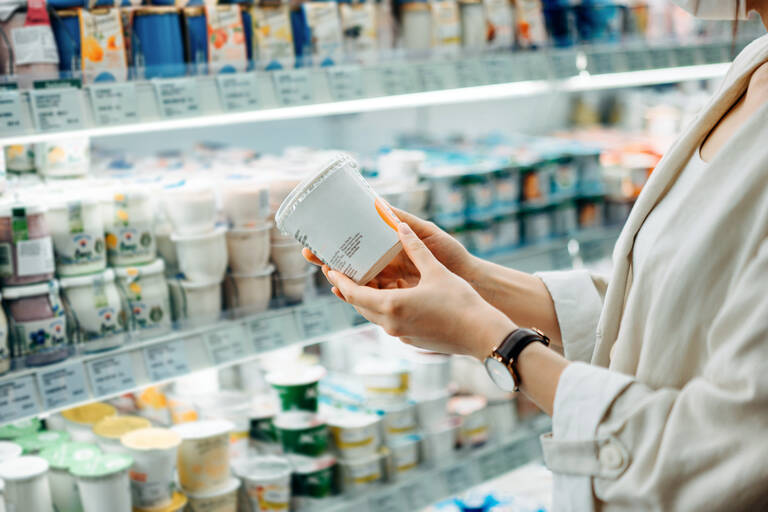This Wednesday, January 17, MEPs gave their final green light to ban “generic,” vague and misleading environmental claims on labels and advertisements, and toughen requirements on labels. Meeting in Strasbourg in plenary session, MEPs ratified by 593 votes (21 against, 14 abstentions) the agreement already reached last September between the Member States and the European Parliament on this new legislation.
The approved text, which must be transposed by the States within two years, aims to protect the consumer by prohibiting imprecise expressions if they are not accompanied by detailed proof. The legislation also prohibits claims of neutral or positive environmental impact based solely on offsetting carbon emissions. The latter often comes down to the planting of trees by companies, an ineffective practice compared to the direct reduction of CO2 emissions.
Promises of future environmental performance must be accompanied by a realistic and independently examined plan. And only sustainability labels based on certification systems approved or established by the authorities will be authorized.
Fight against “early obsolescence”
“The objective is to improve the control of self-certified labels: they must now be certified by an independent authority and companies will have to prove the traceability of their products,” underlined Green MEP David Cormand.
Finally, to fight against “early obsolescence”, unsubstantiated claims about the alleged lifespan of the product or the presentation of a good as repairable when it is not or with difficulty will now be banned. The legislation will prohibit incentives to replace “consumables” such as printer ink cartridges earlier than necessary and the unjustified obligation to purchase spare parts or accessories from the original producer at the expense of others manufacturers.
“People will be able to choose more durable and repairable products thanks to reliable marketing […] Companies will no longer be able to mislead people by saying that plastic bottles are acceptable because the company has planted trees,” summarizes the socialist MEP Croatian Biljana Borzan, rapporteur of the text. The coalition of environmental NGOs ECOS (Environmental Coalition on Standards) welcomed the adoption of the text, while estimating that it “relies heavily on close monitoring of the market, which today remains incomplete”.
Above all, the coalition of NGOs calls on States and MEPs to speed up their ongoing negotiations on a second, more ambitious draft of legislation against “greenwashing”, proposed by the Commission in March 2023. This other legislative project aims to ban all environmental claims that are not supported by factual and scientific bases, available via a QR code or on a website, with “dissuasive” sanctions in the event of non-compliance.
This article is originally published on liberation.fr








